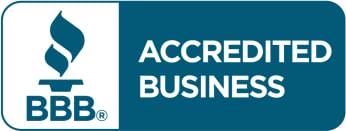Many people who become injured or are in pain due to physical disease, can be susceptible to becoming dependent on opioids in the form of a prescription.
We understand at Virtue recovery in Astoria drug rehab that it can be concerning for those who relied upon a drug to help them and to only find that it is now harming them. This type of substance use that leads to abuse and addiction can have long-lasting negative effects if not treated properly. The subtle and gradual way that prescription drugs lead to dependence upon them makes it all the more insidious and challenging to preempt it before it gets serious, especially with those who have never experienced dependency before.
When we are prescribed medication from our doctors, we generally believe that it will do no lasting harm. You may be recovering from a broken bone and before you know it, the bone is healed but you’re asking for more medication. That’s a typical scenario where many people end up in drug rehab for their dependency on prescriptions.
At Virtue Recovery in Astoria, we have seen that drug addiction and treatment for prescriptions are on the rise, specifically with people over the age of 40 as the most common cause is physical pain-related issues.
How Prescription Medication Can Lead to Addiction
Rather than treat the sometimes underlying causes, or having people suffer through pain, more and more people turn to medication to function. Chronic pain and disease such as asthma, diabetes, heart conditions, obesity, HIV, autoimmune disorders are examples of challenges that without proper medication it would be difficult to survive and thrive. In addition, several mental disorders and illnesses that people live with when off their medication wreak havoc in their lives. Certainly, having access to medication is imperative for millions of people, but then does it go too far?
Drug dependency of any kind starts when the brain adjusts to the levels of the chemical compounds and then needs more to function at the same level. The little wires which the brain has for thought processing, called neuropathways, become “rewired” and start seeking the substance. In turn, this causes an immediate reaction to the need for the chemical balance, which becomes the behavior of addiction. It has little or nothing to do with “willpower” as once the brain becomes hardwired to need a chemical, without being completely locked away from it, a person will go to any length to obtain the substance.
Most people want to get off of drugs as an intellectual idea but find that they simply cannot be due to the drive the neuropathways have over their brain. Brain receptors that seek hormones such as dopamine are incredibly strong, and when they become dependent upon increasing the levels, a radical reversal such as medically controlled drug rehab and treatment is often the answer. People just can’t do it alone optimally.
Categories of Drug Dependence
Looking at the levels of dependency, one can see that heading an issue off at the first category has its advantages, though so many people are in denial that they could be addicted, or on their way to it, that they often end up in trouble.
Listed are general categories of drug dependency, after the use of prescription drugs:
- A physical tolerance happens there are increased amounts of the prescription to maintain similar effects, such as staying out of pain. This is the first level of addiction as many find themselves sometimes unconsciously “chasing the high.” Signs are when a patient returns to a doctor and asks for more or a higher dosage or starts lying to medical professionals to obtain more. The person will start to use it more often and more frequently. Depression and anxiety are usually present, as the user will be focusing more time on obtaining the medication and if not, can become emotionally unstable.
- The use continues with added negative consequences such as losing a job or relationships, jail time (often by theft of medication), educational and financial difficulties, a lack of responsibility, and even possible overdosing or hospitalization.
- Intensive use: this level occurs when everything in a person’s life no longer matters except obtaining and using the substance. Their personality, appearance, cognitive thinking, and emotional health will radically falter. Nothing anyone tries to do to help them will make a difference unless they have a “wake-up call.” Interventions can be helpful at this point. Drug treatment and rehab are something they will hopefully decide upon.
Rehab Treatment for Prescription Abuse
The general public tends to believe that drug rehab is for people who are addicted to alcohol or illegal substances. At Virtue Recovery, we know that many people suffer from prescription medication dependency and are ready to help in Astoria.






